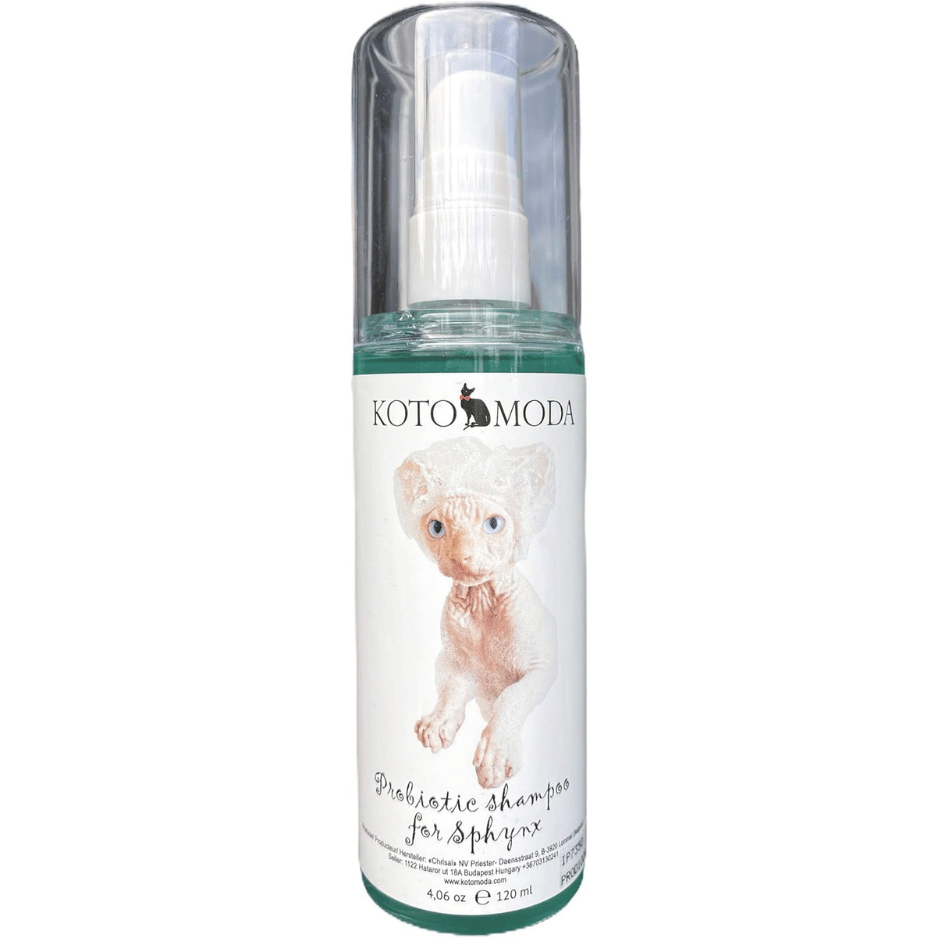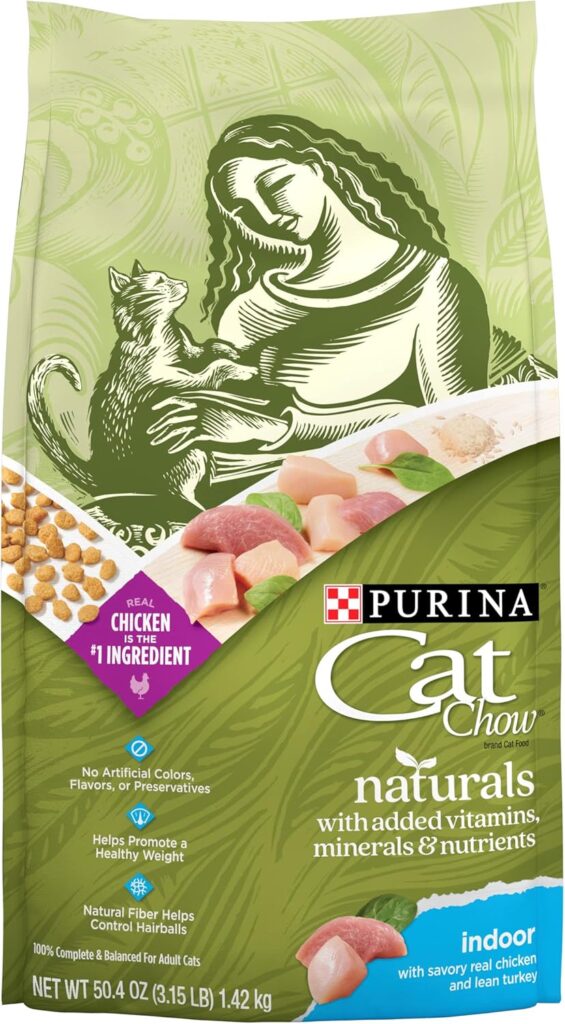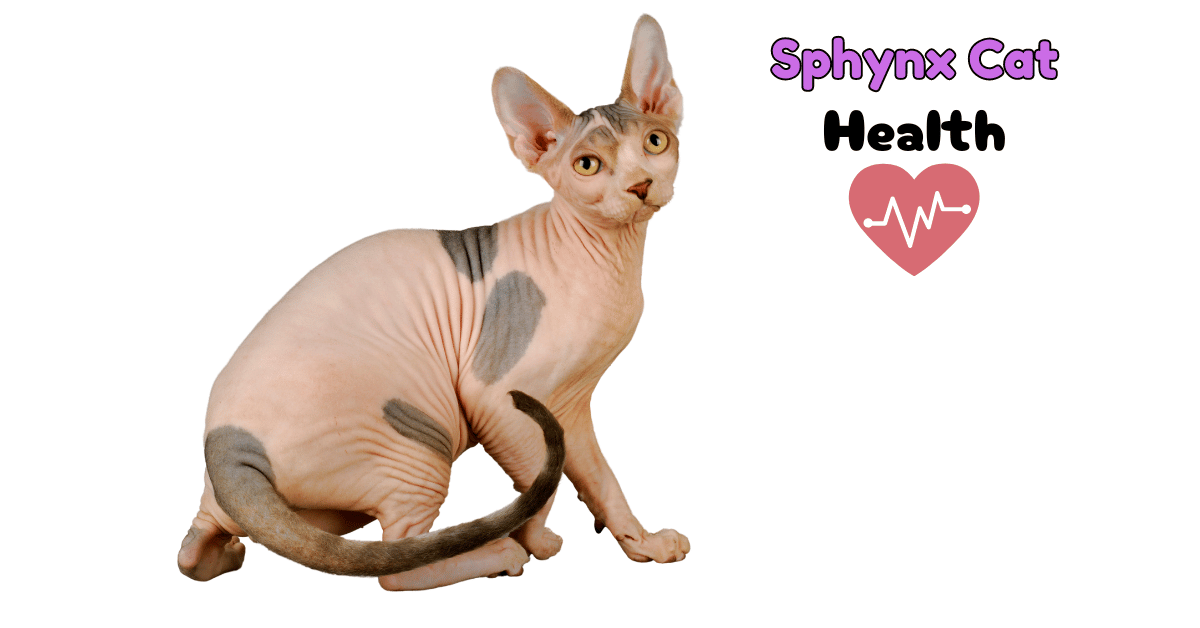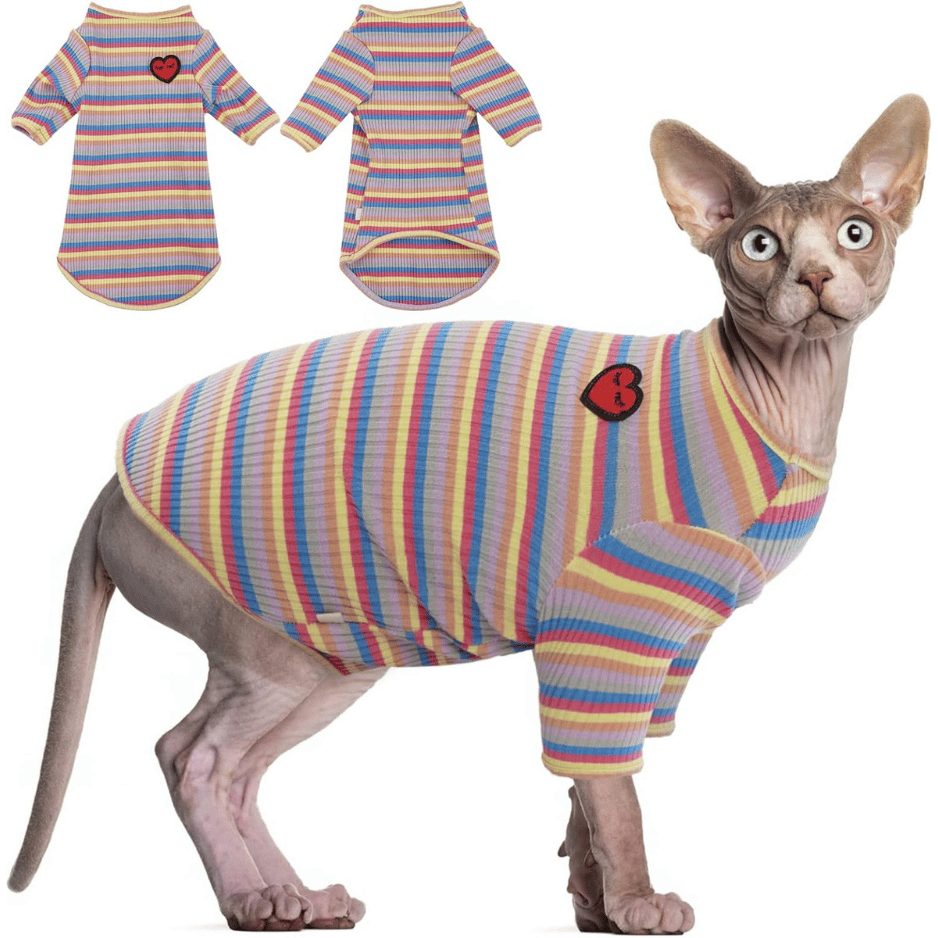This post contains affiliate links and I will be compensated if you make a purchase after clicking on my links.
The Heart of Sphynx Cat Health: Why Owners Need to Know
Understanding the health needs of a Sphynx is vital for any potential or current owner. These cats’ unique physiology not only makes them the center of attention but also predisposes them to certain health challenges. The lack of fur means that skin issues are more visible and require regular care to prevent. Moreover, their genetics place them at risk for several breed-specific conditions.
For Sphynx owners, knowledge isn’t just power—it’s a preventative measure. Being proactive about health care can help manage or mitigate potential issues before they become serious. Regular check-ups with a vet who understands the breed’s needs are crucial. Equally important is the owner’s daily commitment to their cat’s care, from skin and dental care to managing their environment to keep them healthy and happy.
Fun Fact: The Sphynx cat, a product of selective breeding in the 1960s, is famous for its lack of a fur coat. But did you know they’re not always completely bald? Many Sphynx cats have a fine layer of downy fuzz, giving their skin the feel of a warm peach.
Battling Skin Issues in Sphynx Cats
The skin of a Sphynx is as unique as their personality: expressive, sensitive, and unfortunately, prone to a few issues. Without fur to absorb their natural oils, Sphynx cats can develop oily skin, which in turn can lead to acne or even more severe skin conditions such as urticaria pigmentosa, a form of mast cell cancer. Seborrhea, either oily or dry, can also be a concern, causing flaky, oily skin that can be uncomfortable and prone to infections.
Caring for a Sphynx’s skin requires a balance of regular bathing and choosing the right products. Over-bathing can strip away essential oils, leading to dryness and irritation, while under-bathing can allow oil and dirt to build up.
A weekly bath with a gentle, hypoallergenic shampoo is typically a good rhythm, but always tailor this to your cat’s specific skin condition and vet’s recommendations. Post-bath, a soft towel and a warm room are must-haves to keep your hairless friend from getting cold.

Keeping Warm: Temperature Challenges for Sphynx Cats
The lack of a fur coat is undoubtedly the Sphynx’s most defining feature, but it’s also a significant vulnerability, especially in cooler climates. These cats can easily become cold, which can lead to discomfort and even health issues if not properly managed. It’s not just about comfort—it’s about health. A chilly Sphynx can quickly become a stressed and potentially sick Sphynx.
Keeping a Sphynx warm isn’t just about piling on clothes; it’s about creating a warm environment. Think cozy beds, ideally heated or self-warming, placed in sunny spots during the day. Clothing can help, especially during the colder months or in drafty houses—sweaters and little cat shirts can be both functional and amusingly cute on a Sphynx. Remember, though, not all cats like to wear clothes, so it’s important to pay attention to how your pet responds and adjust accordingly.
Oral Health in Focus: Dental Care for Sphynx Cats
Dental health is another critical area for Sphynx cats. They are particularly susceptible to periodontal disease, which can lead to serious health issues if left untreated. Regular brushing is recommended, using a vet-approved pet toothpaste, to minimize the risk of plaque buildup, which can lead to tooth decay and gum disease.
Look for signs of dental discomfort in your Sphynx, such as bad breath, a reluctance to eat, pawing at the mouth, or swollen gums. These could indicate dental issues that require professional attention. Annual dental check-ups are essential to maintaining good oral health and catching any potential problems early.
The Silent Threat: Ear Infections in Sphynx Cats
Sphynx cats are particularly prone to ear infections, which can be both uncomfortable and harmful if left unchecked. Their large, open ears accumulate more debris and wax than those of other breeds, which can lead to infections if not regularly cleaned. Additionally, the lack of hair around the ear area means less protection against dirt and bacteria.
Preventative ear care is essential. Regular checks and cleaning with a vet-approved ear cleaner can help prevent the buildup of wax and debris that leads to infections. Signs that your Sphynx may be suffering from an ear infection include excessive scratching of the ears, redness inside the ear, a noticeable odor, or discharge. If you observe any of these symptoms, a visit to the vet is crucial to get appropriate treatment and prevent further complications.
A Deeper Look at Hypertrophic Cardiomyopathy (HCM) in Sphynx Cats
One of the most severe health risks for Sphynx cats is Hypertrophic Cardiomyopathy (HCM), a heart condition that is unfortunately common in the breed. HCM leads to the thickening of the heart’s walls, which can impair the heart’s ability to pump blood effectively and may result in severe health problems or even sudden death.
The challenge with HCM is that it can often develop silently, with symptoms only appearing once the condition is advanced. Signs to watch for include lethargy, rapid breathing, or difficulty breathing. Early detection through regular veterinary check-ups, including echocardiograms, can be lifesaving.
Tip: Genetic testing is also available to determine if a Sphynx carries the gene responsible for HCM, which is crucial for breeders to help prevent the propagation of the condition.
Proactive Health Measures: Preventive Care Essentials
Beyond addressing specific health issues, maintaining the overall health of a Sphynx cat involves regular veterinary visits and a proactive approach to monitoring their well-being. Routine check-ups allow for early detection of potential health issues, and keeping an up-to-date vaccination and deworming schedule is imperative.
Nutritional considerations also play a significant role in a Sphynx’s health. Due to their higher metabolism—partly from working harder to stay warm—a Sphynx cat may require more food than their furry counterparts. High-quality, balanced nutrition specifically formulated for your Sphynx’s age, health status, and activity level is essential to keep them in top condition.

Lifespan and Thriving: Ensuring Quality of Life for Sphynx Cats
With attentive care and preventive health measures, Sphynx cats can enjoy a lifespan that rivals that of the furriest felines, typically ranging between 8 to 14 years, and some reaching up to 20 years. This longevity is not just about surviving but thriving—creating an environment where your Sphynx can be the most content, engaged, and healthy version of themselves.
Crafting a Cat-Friendly Haven
To enhance the quality of life for your Sphynx, consider their environment. Sphynx cats are naturally curious and active, so an environment rich in stimulation—think climbing structures, puzzle feeders, and interactive toys—is crucial for keeping their minds sharp and their bodies active. Regular playtime is not just fun but also a fundamental part of maintaining a healthy weight and preventing obesity, which can contribute to other health issues.
Bonding: The Heart of Sphynx Ownership
The emotional health of a Sphynx is just as important as their physical health. These cats form deep bonds with their owners and can become distressed when left alone for long periods. Integrating social interactions into daily routines can help reduce anxiety and stress. Whether it’s snuggle time on the couch or interactive play, quality time together strengthens the bond and supports your Sphynx’s emotional well-being.
Conclusion: A Proactive Approach to Sphynx Cat Health
Owning a Sphynx cat is a rewarding experience that comes with a unique set of responsibilities. Understanding and addressing the specific health issues faced by the breed can help ensure that your cat enjoys a long, healthy, and fulfilling life. Embrace the journey of Sphynx cat ownership by staying informed, proactive, and engaged in every aspect of their care. With the right approach, your Sphynx will not just survive—they will thrive.
Looking for products that cater specifically to the unique needs of your Sphynx or other hairless cat breeds? Explore our Hairless Cat Breeds Catalog for a selection of the best products designed to keep your hairless cat healthy and happy.


